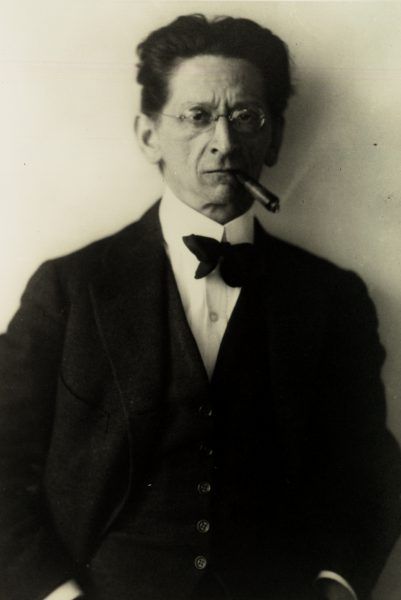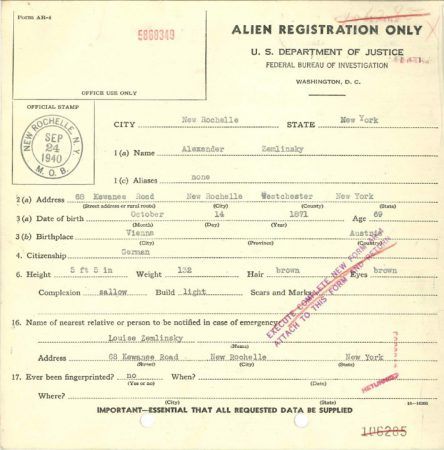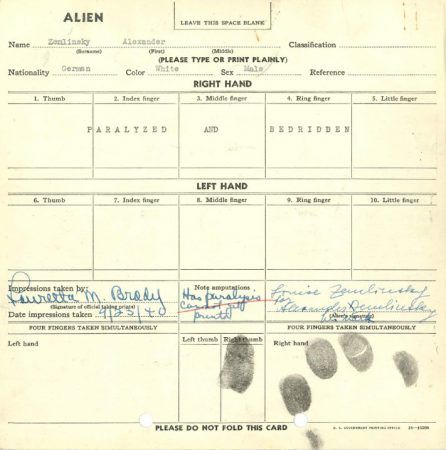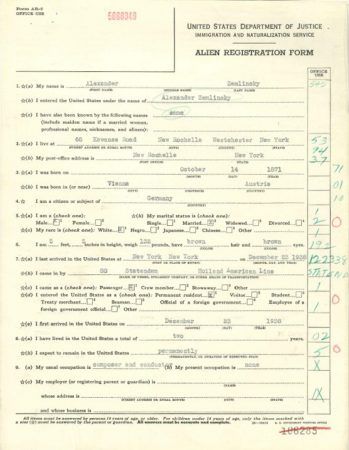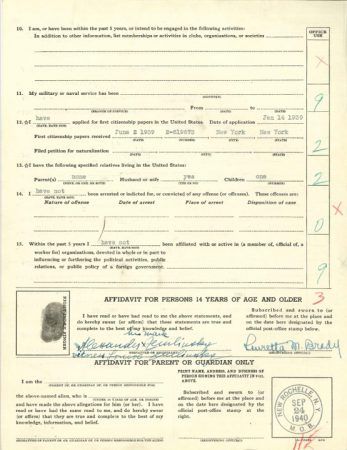Exile in New York
1938-1942
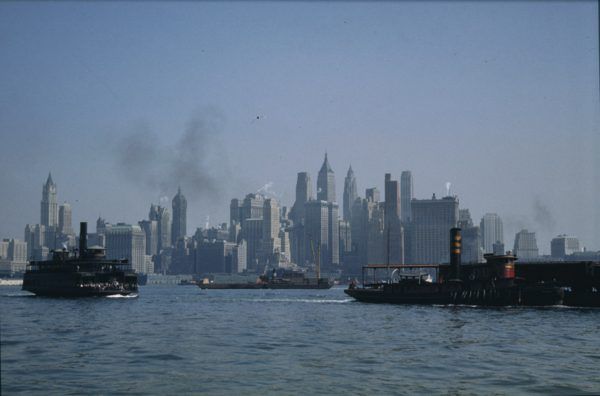
Exile in New York
1938-1942
“Heart, be calm — the darkness can do you no more harm.”
“Auf Braunen Sammetschuhen”, Six Lieder, 1934
There the Zemlinskys obtained two transit visas that secured their passages through Belgium and France. Despite the invasion of the Sudetenland on 1 October 1938, they managed to reach Rotterdam in early December. Two weeks later they left Boulogne on the SS Statendam for New York, arriving on 23 December 1938. Melanie Guttman, Ida’s sister, with whom Zemlinsky had once had a liaison, welcomed them and housed them temporarily in a Manhattan hotel.
In February 1939 they moved into an apartment on the Upper East Side, where they would live for a year. Artur Bodanzky acted as an impresario for Zemlinsky, who was unknown in the U.S. Bodanzky obtained a contract for him with the music publisher Chappell & Co. in June 1939, and acted as his interpreter for an interview published by the New York Times with the resounding title “Zemlinsky Comes to Live Here”. In the interview the composer described the new opera he had been writing since 1935 as “ultra-modern”. The work, an adaptation of a play by André Gide (1869-1951), Le Roi Candaules, which Luisa had probably suggested to him, was never completed.
Bodanzky promotional skills were insufficient, however, and he was also seriously ill, a fact he hid from Zemlinsky. And when Bodanzky died on 24 November 1939, the news was also hidden from the composer. A letter from Schönberg that Louise read to him the same day caused a stroke, and it was thought that the news of Bodanzky’s death would prove fatal.
Zemlinsky was now quite feeble. In 1940 he moved with great difficulty to the couple’s new house in New Rochelle, a suburb of New York. When he had to fill out a series of forms for the American administration in September, he was unable even to provide his fingerprints, and Luise’s were used instead.
It is not known whether Zemlinsky heard the radio broadcast in December of a concert given at Carnegie Hall. The program included his Sinfonietta, written in 1934 and conducted on this occasion by Dimitri Mitropoulos (1896-1960), another foreigner, who was the musical director of the Minneapolis Symphony Orchestra at the time. Alexander Zemlinsky died on 15 March 1942.
The Legacy of Exile
Zemlinsky was undoubtedly also unaware that during the same period his work was being performed in the Nazi ghetto and concentration camp of Theresienstadt in the former Czech Republic. Along with works by Schönberg and Mahler, it was conducted by his former assistant and répétiteur in Prague, Viktor Ullmann (1898-1944). Ullmann also composed and premiered an opera in 1943: The Emperor of Atlantis, or the Disobedience of Death.
Another prisoner of this so-called model camp, where the Nazis had concentrated part of the Jewish intelligentsia, was the composer Hans Krása (1899-1944), who had studied with Zemlinsky in Prague and followed him to the Kroll Opera as a choir director. In 1943 Krása also premiered a children’s opera, Brundibár, which he had composed in 1938. Ullmann and Krása were both deported to Auschwitz-Birkenau on 16 October 1944, where they were assassinated.
When Zemlinsky experienced true exile in 1938, for the first time in his life he almost completely stopped composing. But in February and March 1939, while Bodanzky was attempting to find a job for him, he began writing an adaptation of the myth of Circe with the future screenwriter Walter Firner (1905-2002) and his wife Irma Stein-Firner. Circe, the sorceress of many poisons, transformed Ulysses’ companions into swine before seducing the hero of The Odyssey. The episode was yet another stage in Ulysses’ journey, in which a sex act enabled his companions to shed their animal forms and become human again – a passage through the underworld after which, finally, only music remained.
« J’ai parcouru tous les pays, moi, Ulysse, j’ai traversé toutes les mers, moi, Ulysse, j’ai marché sur toutes les routes et toujours mes pas ont erré. Vous moquez-vous de moi, ô dieux ? Faîtes-vous de moi un chanteur errant, un passant, un mendiant ? »
Circé, opéra inachevé, 1940-1942, livret de Walter Firner
U.S. Immigration File on Alexander Zemlinsky (1940). © Immigration and Naturalization Service, Alien Case File A5868349 for Alexander Zemlinsky, National Archives, Kansas City

